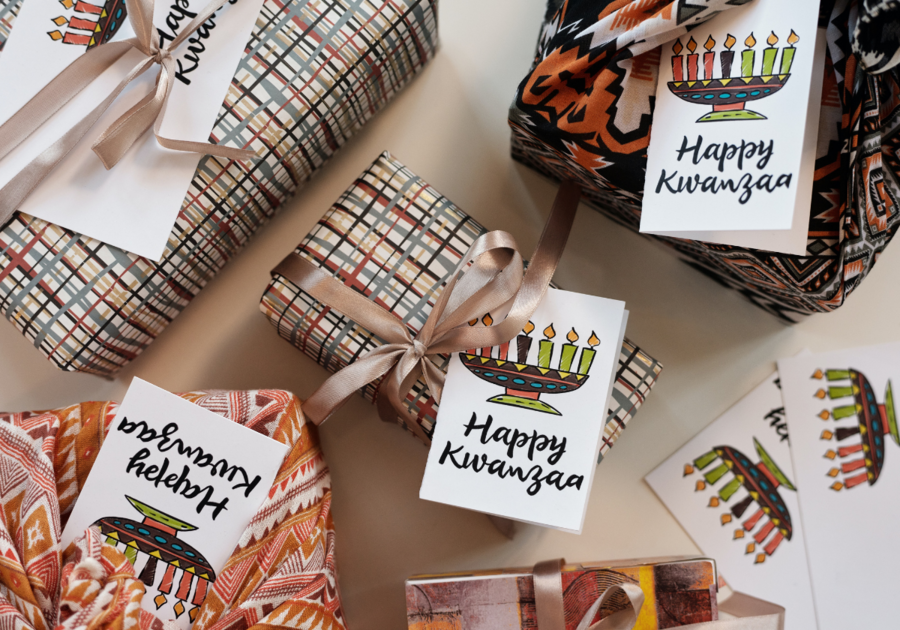Kwanzaa is family-oriented so it's easy to get children involved. Many of the activities surrounding the annual event are geared toward children of all ages and most certainly adaptable for little ones.
The main colors of Kwanzaa are green, black, and red. You should incorporate these hues into your decorating and crafts, from placemats to collages, and other decor items. Since Kwanzaa has a big focus on creativity, you can encourage your kids to make handmade cards and signs to give to relatives and friends. They will enjoy learning and diving into all of the activities that will provide a rich history to carry on for many years to come.
CRAFTS FOR KIDS
Kwanzaa was founded by Maulana Karenga, a black nationalist who later became a college professor. Karenga created Kwanzaa as a way of uniting and empowering the African-American community in the aftermath of the deadly Watts riots. Having modeled his holiday on traditional African harvest festivals, he took the name “Kwanzaa” from the Swahili phrase, “matunda ya kwanza,” which means “first fruits.” The extra “a” was added simply to accommodate seven children at the first-ever Kwanzaa celebration in 1966, each of whom wanted to represent a letter, according to Karenga.
"Kwanzaa is not a religious holiday. It is a cultural one with inherent spiritual quality,” Karenga writes. “Thus, Africans of all faiths can and do celebrate Kwanzaa, i.e. Muslims, Christians, Black Hebrews, Jews, Buddhists, Baha’i, and Hindus, as well as those who follow the ancient traditions of Maat, Yoruba, Ashanti, Dogon, etc.” According to Karenga, non-blacks can also enjoy Kwanzaa, just as non-Mexicans commemorate Cinco de Mayo and non-Native Americans participate in powwows. Thus, Kwanzaa does not replace Christmas, as many people celebrate both.
RECIPES FOR FAMILIES
- Better Homes & Gardens 21 Festive Kwanzaa Recipe Ideas to Try
- 34 Kwanzaa Favorites from Food.com
- 5 Recipes to Get in the Kwanzaa Spirit
- Eating Well's Healthy Kwanzaa Recipes
- 15 Plant-Based Recipes for Your Kwanzaa Celebration
- Vegetarian Kwanzaa Feast
- A Vegan Kwanzaa
In order to avoid over-commercialization, homemade and educational gifts are encouraged on Kwanzaa. Common gifts are books, music, art accessories, or other culturally-themed products, preferably from a Black-owned business.
More information can be found by visiting the official Kwanzaa website.



